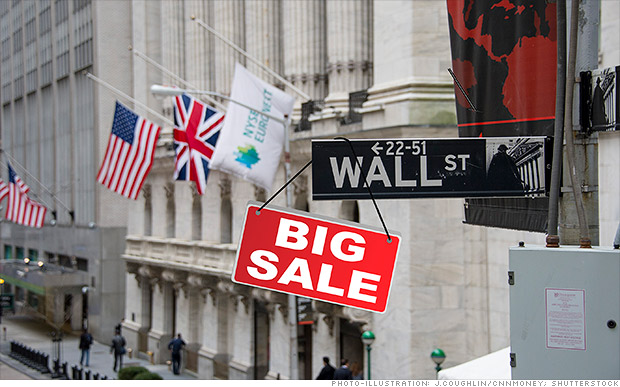
NEW YORK (CNNMoney)
At the moment, investors typically pay 2% just for the privilege of letting a hedge fund manage their millions.
Even if the fund performs horribly, the manager gets to keep 2%.
And that's not all. On top of that, there's a "performance fee" where 20% of all profits go to the manager.
It's like one big bonus, and it's a key reason that top hedge fund managers make billions and land on lists of America's super rich.
Related: The 10 highest paid hedge fund managers
But sophisticated investors have had enough. They are bargaining more aggressively on fees now.
Paul Pagnato of High Tower, which manages money for about 80 high-net worth families, told CNNMoney his firm has moved to a "success fee only" format with two hedge funds. That means they only have to pay the fund manager if he or she delivers performance above zero.
They are saying goodbye to the 2% management fee.
"They liked it and have been very positive," Pagnato said of High Tower's discussions with managers. "They felt good about being innovative. Hopefully, it's something that catches on."
High Tower will now pay a performance fee when a hedge fund returns between 0 and 10% and a higher fee if the manager returns over 10%.
The idea is to incentivize managers to do well -- for themselves and for their investors.
Related: America's largest pension fund is done with hedge funds
Typical hedge fund fees have already come down a notch lately -- to about 1.75% management fee and 18% performance fee, according to David Jallits, head of Global Investment Research at Cambridge Associates, which works with large endowments around the world.
Investors are often able to get discounts when investing in a start up hedge fund. Another growing trend is to get a break on fees if a client is willing to lock up money for a three or five year time horizon.
"Funds want stable money," says Don Steinbrugge of Agecroft Partners, a hedge fund consulting and marketing firm.
But the next phase of fee negotiating is likely to be even more sophisticated. There's increasing awareness among investors over the difference between "alpha" and "beta."
Beta is the returns you derive simply because the market is going up. Think of it as the dumb money. Alpha is the the gain that's truly attributable to the manager's skill at investing.
Related: Is 'smart beta' the next big thing in investing?
"Managers have to truly prove they aren't just scraping beta out of the marketplace. They have to prove they can add alpha," Jallits says.
Soon investors could be able to approach hedge fund managers with data analysis showing that 70% of the return is beta and only 30% is from alpha.
"A manager has to prove the math wrong or be open to lowering their fees," Jallits believes.
2014 has been an interesting year for hedge funds. It's seen the largest number of fund closures since 2009.
But that doesn't mean there's less money flowing in. In fact, hedge funds have the highest amount of assets ever, according to an analysis by Steinbrugge.
Of course, no one is expecting top managers to earn less. The key is to ensure that you're paying for alpha performance.
First Published: December 22, 2014: 7:46 AM ET
Anda sedang membaca artikel tentang
Will hedge fund fees come down to earth in 2015?
Dengan url
http://kasiatbuatsehat.blogspot.com/2014/12/will-hedge-fund-fees-come-down-to-earth.html
Anda boleh menyebar luaskannya atau mengcopy paste-nya
Will hedge fund fees come down to earth in 2015?
namun jangan lupa untuk meletakkan link
Will hedge fund fees come down to earth in 2015?
sebagai sumbernya


0 komentar:
Posting Komentar